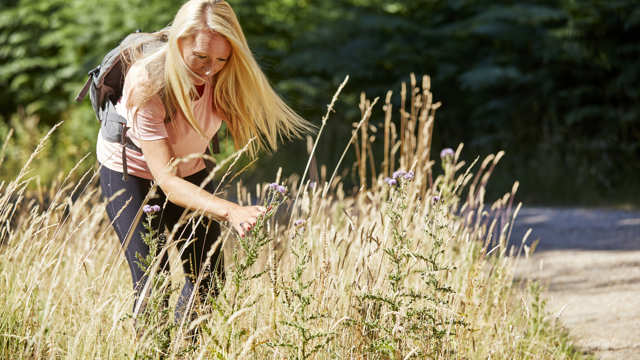
Many of us have discovered that the natural spaces around us – the parks, local fields, and woodland areas - can support our mental health.
But while more of us are turning to our green spaces, the natural world is in crisis. The warming climate and loss of wildlife show that the relationship between people and the rest of nature is failing.
Nature connectedness is a psychological term that describes the strength of an individual’s emotional relationship and attachment to nature. It’s grounded in scientific study and the Nature Connectedness Research Group that I’m part of has been conducting research to understand how we can actively build new relationships with nature and repair the relationship.
We’ve found that a closer connection with nature can boost the health of both people and the natural world. But it’s about more than just being out in nature. It’s about connecting with it, noticing it, and appreciating it. The implications for our wellbeing are huge.
Our research found:
- It is people’s nature connectedness, rather than their contact with nature, that predicts a sense that life is worthwhile. This effect is nearly four times larger than that associated with having a higher socio-economic status.
- During the restrictions to control the COVID-19 pandemic, increases in noticing nature explained levels of wellbeing rather than increases in visiting nature.
- Simply noticing ‘the good things in nature’ brings sustained benefits to mental wellbeing, which were particularly pronounced for people with common mental health problems.
Yet research across 18 countries shows that in the UK we visit nature much less than people in other countries, and our connection to it is lower.
We think this has implications for policy, including social prescribing. There is a need to move beyond thinking about access and time in nature, to improving active engagement with nature. Whether that’s through increasing biodiversity in urban areas, activities in the local park, celebrating nature through the arts, or taking people out into wilder spaces that they might not ordinarily be able to get to.
We encourage everyone to foster a new relationship with nature, one that uses all our senses, experiences the emotions, appreciates the beauty, finds meaning and treats it with compassion.
----------------------
Miles Richardson is Professor of Human Factors and Nature Connectedness at the University of Derby and leads the Nature Connectedness Research Group. Check out the Thriving Communities webinar on Nature Connectedness that he was part of.
Further details of the Nature Connectedness Research Group’s work can be found on the University of Derby website and Miles’ personal blog: findingnature.org.uk and Twitter feed: @findingnature


